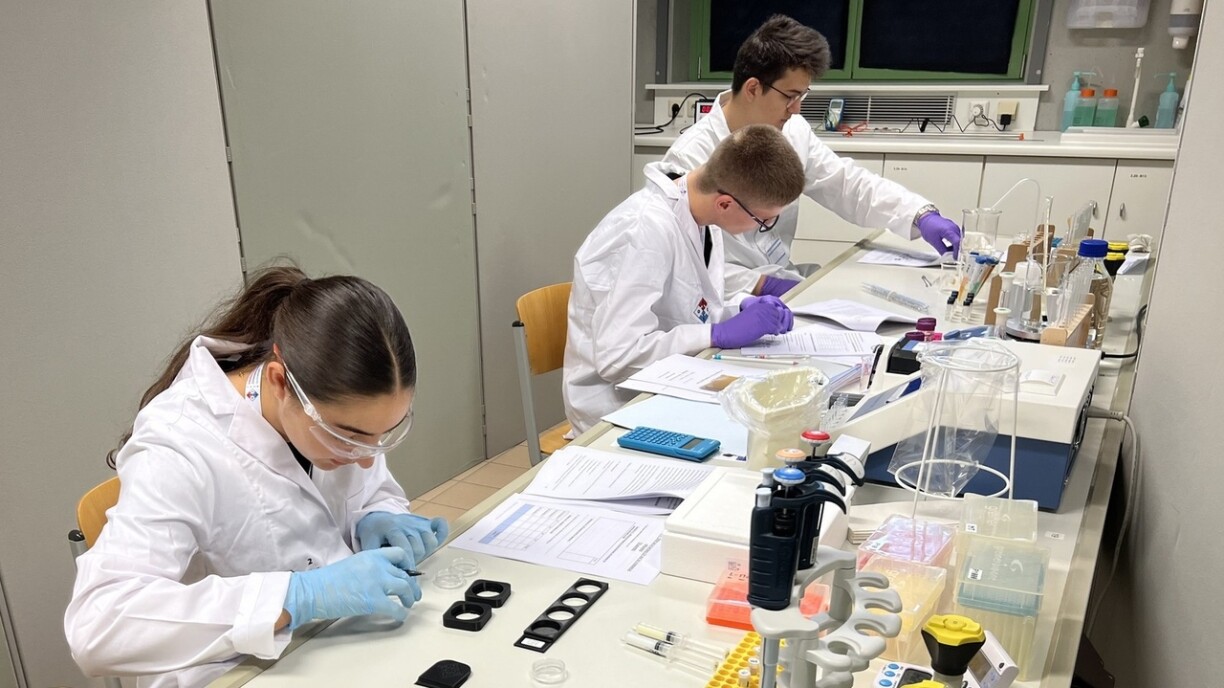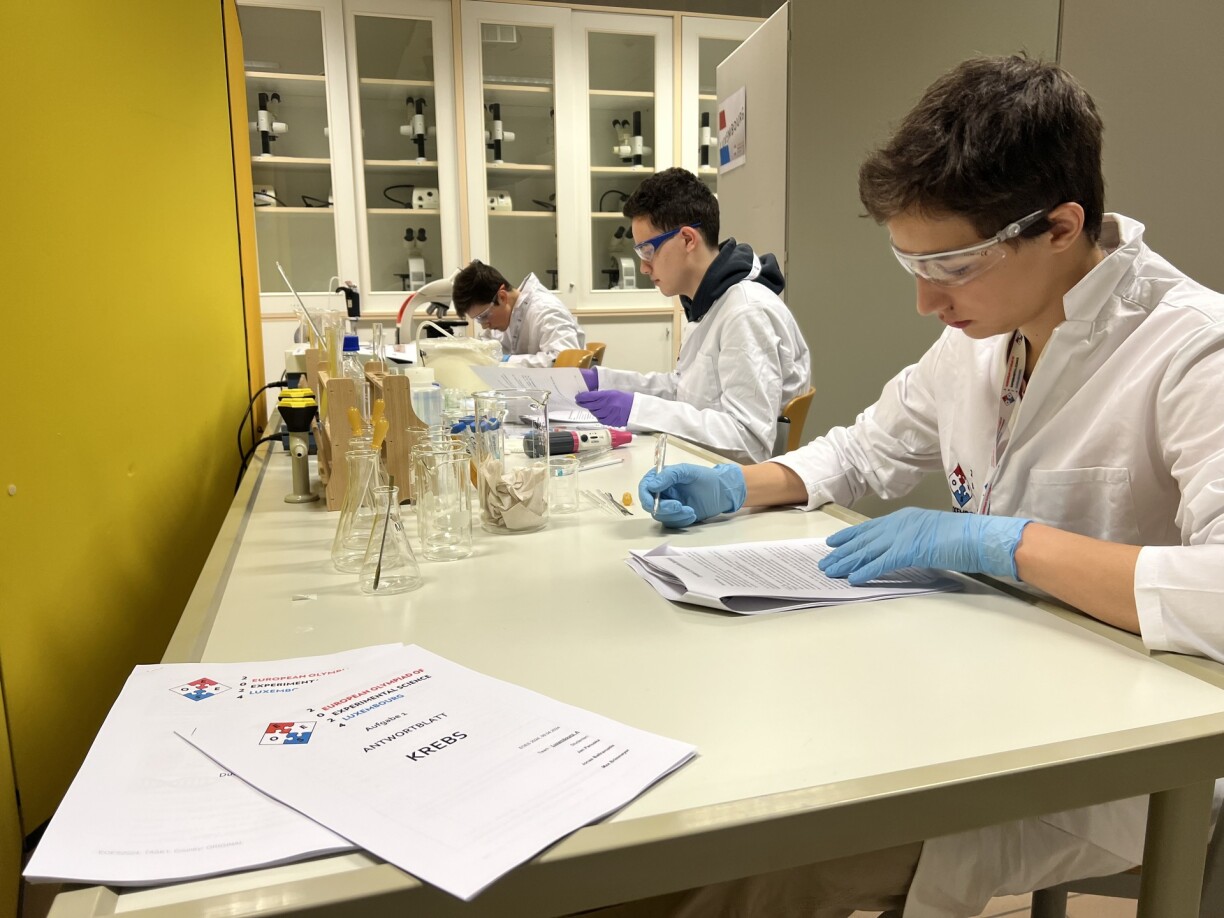
The European Olympiad of Experimental Science, hosted in Luxembourg this year, presented an exhilarating challenge for the participating students. On Tuesday morning, the first half of the 46 teams took up the challenge at Campus Limpertsberg. Our colleagues from RTL Radio were there when it all kicked off.
The anticipation was palpable as students gathered in the corridors of the science building shortly before 8am, eagerly awaiting entry into the laboratories. Among them was Max Brimmeyer from Athénée, representing one of the six students from Luxembourg. “I’m a bit nervous, yeah, but if we work as a team, we’ll manage,” he remarked. With delegations from 24 countries in attendance, meticulous preparations were underway to ensure a level playing field for all participants. In teams of three, students aged between 15 and 17 were tasked with conducting their own research and presenting their findings within a four-hour timeframe. To accommodate the diverse linguistic backgrounds of the contestants, the tasks had been translated into over 20 languages.
As the competition resumed in the afternoon, the specific tasks remained undisclosed to our colleagues. However, the organisers noted that a comprehensive understanding of physics, biology, and chemistry was required, and that the difficulty level corresponded to the first year of university.

On Tuesday evening, an international jury comprising 13 teachers will convene to evaluate the projects submitted by participants. While the top-performing team will be honoured with a medal, the competition holds mostly sentimental significance for participants. Jeff Kohnen, organiser and president of the non-profit Naturwëssenschaftsolympiad, stated that Luxembourg has demonstrated commendable performance in recent years, securing 4th and 3rd place respectively.
In addition to academic pursuits, the Olympiad serves as a platform for students to forge meaningful connections. For this reason, a number of cultural visits are part of the programme as well.
Despite strides in inclusivity, a lingering challenge remains: the underrepresentation of female students, particularly in the field of physics.
The Olympiad of Experimental Science incurs costs totalling €400,000, with funding divided evenly between the Ministry of Education and sponsors.
Listen to the audio report in Luxembourgish